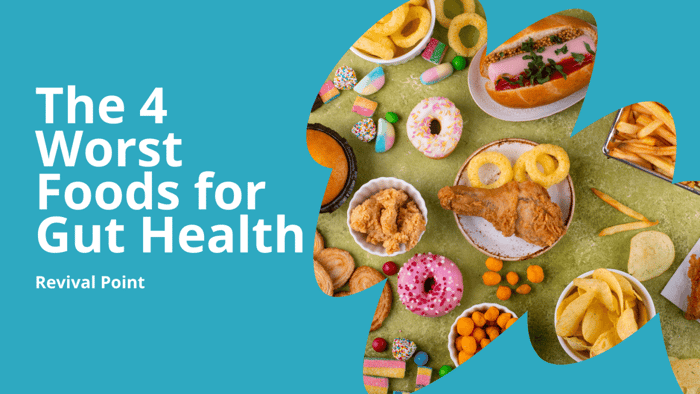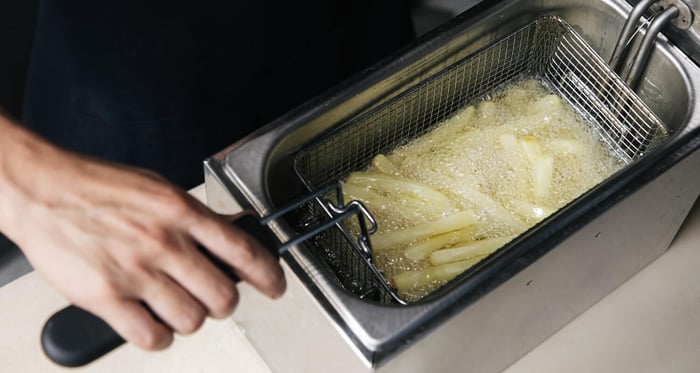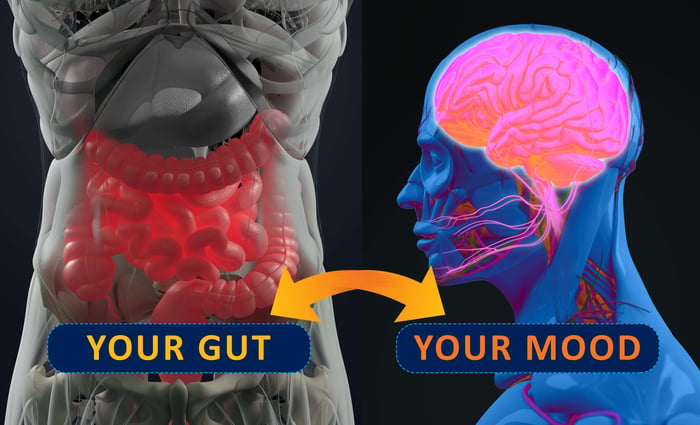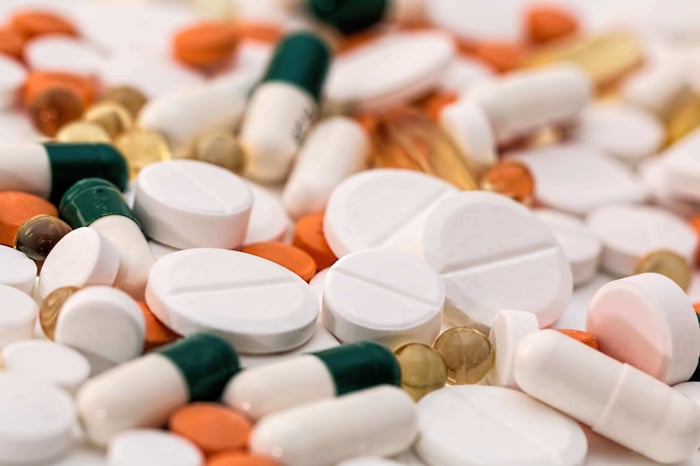Did you know that about 60 to 70 million people suffer from gastrointestinal diseases? These issues can have an effect on everyday life and make things hard. As we start to age, taking care of gut health, or avoiding what is bad for gut health, becomes more important than ever.
In this article, we'll take a look at the top 4 popular foods bad for gut health.
Why Is Gut Health Important?
When it comes to your overall health and well-being, our gut microbiome plays a crucial role. It is a complex ecosystem of trillions of microorganisms, including bacteria, fungi, and viruses. These live in your digestive tract and can be influenced by the food you eat.
These microorganisms help digest your food, produce nutrients, and support your immune system. Certain foods bad for your gut can disrupt the delicate balance of its microbiome. This can lead to a host of health problems, which is why there to look out for foods that affect the gut flora.
1. Sugar
Sugar is one of the most enjoyable yet damaging foods for your gut health. When you consume large amounts of sugar, it feeds the harmful bacteria in your gut. This leads to an imbalance in your gut microbiome.
This imbalance can lead to inflammation, bloating, and brain fog. It can even lead to chronic diseases like obesity, diabetes, and heart disease. Try to limit your intake of sugary foods, including candy, soda, and baked goods.
2. Artificial Sweeteners
Artificial sweeteners may be calorie-free, but they are not harmless. It turns out synthetic solutions to sugar also alter your gut microbiome and are high on the list as one of the worst foods for your gut lining. They kill off your good gut bugs and allow the potential overgrowth of bad ones and once they take over, you gain weight and this happens quickly. We've been lead to believe that artificial sweeteners help us, but they do the opposite.
Food industries believe they are aiding in the sugar addiction epidemic by replacing natural and processed sugar with synthetic products. They think sugar is the villain. So, they create chemical substitute, like sucralose, saccharin, and aspartame.
Problem solved, right? You’re sweetening your tea with zero-calorie aspartame. You’re no longer using sugar. The thing is, food developers have left out a major part of the equation – your body doesn’t know it’s not ingesting sugar!
Studies have shown that artificial sweeteners not only disrupt the balance of your gut microbiome but lead to weight gain.(1)
This can be a serious issue that can lead to glucose intolerance, weight gain, and metabolic disorders. Artificial sweeteners are in diet sodas, low-fat yogurt, and many other processed foods. To protect your gut health, there are a few ingredients that you should avoid.
There are several artificial sweeteners that you may want to leave in the past, either due to health concerns or personal preference. Below are some of the common artificial sweeteners that destroy the gut microbiome.
Aspartame
Aspartame is a commonly used artificial sweetener that is found in products such as Equal and NutraSweet,. It is linked to a range of health issues, including headaches, digestive problems, and mood disorders.

Aspartame, sold in blue packets under the brand names Equal and NutraSweet, is a nonnutritive artificial sweetener that is 200 times sweeter than sugar, according to the FDA.Aug 21, 2019. Source: Everyday Health
Sucralose
Sucralose is another popular artificial sweetener that is found in products like Splenda. It is believed to be safe for most people, but some studies suggest that it may have negative effects on the gut microbiome.
Saccharin
Saccharin is the artificial sweetener found in Sweet 'N Low. It has been linked to an increased risk of bladder cancer in rats, although human studies have not found a similar link. This may make people rethink their choices.

3. Processed Foods
When we talk about processed foods, we're referring to foods that have been altered from their natural state for convenience, longevity, or taste. This can range from simple processes like freezing vegetables to more complex alterations involving additives, preservatives, and artificial flavors. Common examples include canned goods, microwave meals, sugary cereals, refined breads, and fast food. While not all processed foods are bad for your gut, many contain high levels of sugar, salt, and unhealthy fats, along with artificial additives that can disrupt your gut microbiome. Therefore, it's crucial to read labels carefully and opt for minimally processed options whenever possible.
Examples of Processed Foods:
- Canned Goods: Such as canned fruits, vegetables, and meats that often contain added salt or sugar.
- Microwave Meals: Pre-packaged meals that are high in sodium and preservatives.
- Sugary Cereals: Breakfast cereals that are high in sugar and low in fiber.
- Fast Food: Burgers, fries, and other items that are high in unhealthy fats and sodium.
- Snack Foods: Chips, cookies, and candy bars that contain artificial flavors and preservatives.
- Sodas and Sugary Drinks: Beverages that are high in sugar and artificial sweeteners.
- Processed Meats: Such as sausages, hot dogs, and deli meats, which often contain preservatives and are high in sodium.
Harmful Ingredients in Processed Foods:
Scientific studies have shown that certain ingredients commonly found in processed foods can be harmful to gut health:
- Artificial Sweeteners: Such as aspartame and sucralose, can disrupt the balance of gut bacteria.
- Trans Fats: Found in many fried and baked goods, can lead to inflammation in the gut.
- High-Fructose Corn Syrup: Commonly found in sugary drinks and snacks, can contribute to gut dysbiosis.
- Sodium Benzoate and Potassium Benzoate: These preservatives can negatively affect the gut microbiome.
- MSG (Monosodium Glutamate): Used as a flavor enhancer, has been linked to gut health issues.
To protect your gut microbiome, try whole foods that are rich in fiber, vitamins, and minerals. Fruits, vegetables, whole grains, and lean protein are all excellent choices. Some people who live a fast lifestyle may take supplements to ensure they are getting what they need.
4. Red Meat
Red meat is a popular food that many people enjoy every day, but it is not good for your gut health. When you consume red meat, it releases a compound called TMAO or trimethylamine-N-oxide. This is a major cause of inflammation in your gut.
This inflammation can damage the lining of your stomach, leading to leaky gut syndrome and other digestive problems. If you enjoy red meat, you don‘t have to cut it out completely. Try to limit your intake to once a week or less. Instead, choose lean protein sources other than meat like turkey, chicken, salmon, bison and elk.
Foods That Help The Gut
There are foods that can help promote a healthy gut. However, there are foods that may be considered healthy but might not be the best for digestive health.
For example, foods that contain lectin, known as the “antinutrient” is a type of protein that binds to certain carbohydrates like sugar. Certain types of lectins may bind with the walls of your digestive system which can lead to to intestinal permeability AKA leaky gut and chronic inflammation
Eating one particular lectin, phytohemagglutinin, can lead to severe abdominal pain, vomiting, and diarrhea.
Lectins are found in night shade vegetables, legumes, grains, nightshade vegetables, squash, A1 dairy, conventionally raised meat.

Luckily, you can prevent gut disease if you eat right. These are some foods that kill bad gut bacteria, but keep in mind they should be a part of a balanced diet.
Fermented Foods
Fermented foods like yogurt, kimchi, sauerkraut, kefir, and kombucha are great for health. They contain beneficial probiotic bacteria that can help to crowd out harmful bacteria in the gut.
Garlic
Garlic has antimicrobial properties, which can help to kill harmful bacteria in the gut. It also contains prebiotic fibers that promote the growth of beneficial bacteria in the stomach.
Ginger
Ginger also has antimicrobial properties and can help to kill bad gut bacteria. It is also known for its anti-inflammatory effects, which can help to soothe an irritated gut.
Turmeric
Turmeric contains a compound called curcumin and has anti-inflammatory and antimicrobial properties. It can help to get rid of bad gut bacteria and reduce inflammation in the gut.
Apple Cider Vinegar
People use apple cider vinegar for its antimicrobial properties, which can help to kill harmful bacteria in the gut. It is also known for its ability to improve digestion and promote the growth of good gut bacteria.
Green Tea
Green tea contains polyphenols, which are heavy in antimicrobial properties. Drinking green tea regularly can help reduce the levels of bad gut bacteria and promote a healthier gut microbiome.
Cut Out Foods Bad For Gut Health Today
Especially as you get older, it's important to avoid foods bad for gut health. If you avoid these 4 popular foods listed above, you can protect your gut microbiome and promote overall health and well-being. Limiting your intake of processed or sugary foods will create a healthy gut microbiome that will support your body for years to come.
The Only "Doctor-Approved" Way to Improve Your Gut Health.
If you've fallen victim to any of these "gut-destroying foods"... don't worry.
I've struggled with these foods in the past as well.
Judging by the latest health fads out there... you might think that "eating a jar of kimchi every day" or "buy the dairy section out of yogurt and eat it all" each week might be the only solutions to the problem.
Enter Dr. Steven Masley.
Dr. Masley is a functional medicine doctor. That means he makes it his mission to attack health problems at their source.
And for folks with bad gut bacteria... who want to process food better... have more energy... and tone up...
There's really only one thing Dr. Masley recommends.
To see Dr. Masley's top gut-health recommendation... plus how to instantly have more energy and a toned-up body... just click the link below now:
[VIDEO]: Dr. Steven Masley Reveals His Brand-New Gut Health Secret
Floraspring® Probiotics (25 Billion CFU's)
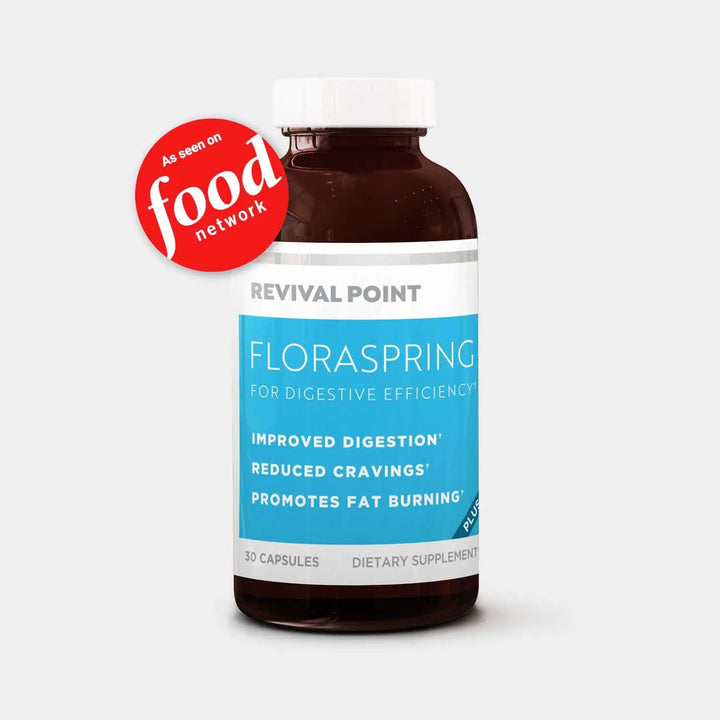
$177.00
$209.85
Floraspring® is a probiotic specifically designed with 15 science-backed probiotic strains INCLUDING 5 SUPER STRAINS for a complex balance support for weight, management, digestive health, and suppression of cravings.* 25 Billion Powerful Colony-Forming Units (CFUs) 15 Scientifically Backed Probiotic Strains… read more
Sources:
1.https://www.ncbi.nlm.nih.gov/pmc/articles/PMC2892765/

